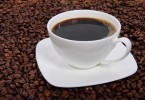There are many words in the English language that have been named after people, places, characters in books and mythological characters. Here are some pretty common words named after people:
1. Bloomers: Women’s loose-fitting knee-length knickers, considered old-fashioned. Named after Mrs. Amelia J. Bloomer, an American social reformer who advocated a similar garment
2. Bobby: Informally, a police officer in England. Named after Sir Robert Peel (Bobby is a pet form of Robert)
3. Boycott: Withdraw from commercial or social relations with (a country, organization, or person) as a punishment or protest. Named after Captain Charles C. Boycott, an Irish land agent so treated in 1880, in an attempt instigated by the Irish Land League to get rents reduced.
4. Cardigan: Knitted jumper fastening down the front. Named after James Thomas Brudenel, 7th Earl of Cardigan, leader of the Charge of the Light Brigade, whose troops first wore such garments.
5. Chauvinism: Exaggerated or aggressive patriotism. Named after Nicholas Chauvin, a Napoleonic veteran noted for his extreme patriotism.
6. Czar: An emperor of Russia before 1917. Named after Caesar.
7. Diesel: An internal combustion engine in which heat produced by the compression of air in the cylinder is used to ignite the fuel. Also diesel oil. Named after Rudolf Diesel, French-born German engineer, inventor of the diesel engine.
8. Dunce: A person who is slow at learning; a stupid person. Named after John Duns Scotus, whose followers were ridiculed by 16th century humanists and reformers as enemies of learning.
9. Guillotine: A machine with a heavy blade sliding vertically in grooves, used for beheading people. Named after Joseph-Ignace Guillotin, a French physician who recommended its use for executions in 1789.
10. Leotard: A close-fitting one-piece garment, made of a stretchy fabric, which covers a person’s body from the shoulders to the top of the thighs, worn by dancers or people exercising indoors. Named after Jules Léotard, French trapeze artist.
11. Lynch: Kill (someone) for an alleged offense without a legal trial, especially by hanging. Named after Captain William Lynch, head of a self-constituted judicial tribunal in Virginia.
12. Martinet: A person who demands complete obedience; a strict disciplinarian. Named after Jean Martinet, 17thcentury French drill master.
13. Masochism: The tendency to derive sexual gratification from one’s own pain and humiliation. Named after Leopold von Sacher-Masoch, an Austrian novelist who described it.
14. Maudlin: Self-pitying or tearfully sentimental. Named after Mary Magdalene – allusion to pictures of her weeping.
15. Maverick: An unorthodox or independent-minded person. Named after Samuel A. Maverick, a Texas rancher who did not brand his cattle.
16. Nicotine: A toxic colourless or yellowish oily liquid which is the chief active constituent of tobacco. Named after Jean Nicot, a French diplomat who introduced tobacco to France in 1560.
17. Quisling: A traitor who collaborates with an enemy force occupying his/her country. Named after Major Vidkun Quisling, a Norwegian army officer and diplomat. who ruled Norway on behalf of the German occupying forces (during WW II).
18. Sadism: The tendency to derive pleasure, especially sexual gratification, from inflicting pain, suffering, or humiliation on others. Named after the Marquis de Sade, a cruel cavalry officer who wrote sexually explicit works in prison.
19. Sandwich: An item of food consisting of two pieces of bread with a filling between them. Named after the 4thEarl of Sandwich, said to have eaten food in this form so as not to leave the gaming table.
20. Shrapnel: Fragments of a bomb, shell, or other object thrown out by an explosion. Named after General Henry Shrapnel, a British soldier who invented the shell.
* All definitions from the Oxford Dictionary of English.
Visual Courtesy: http://www.flickr.com/photos/mkdooley/







